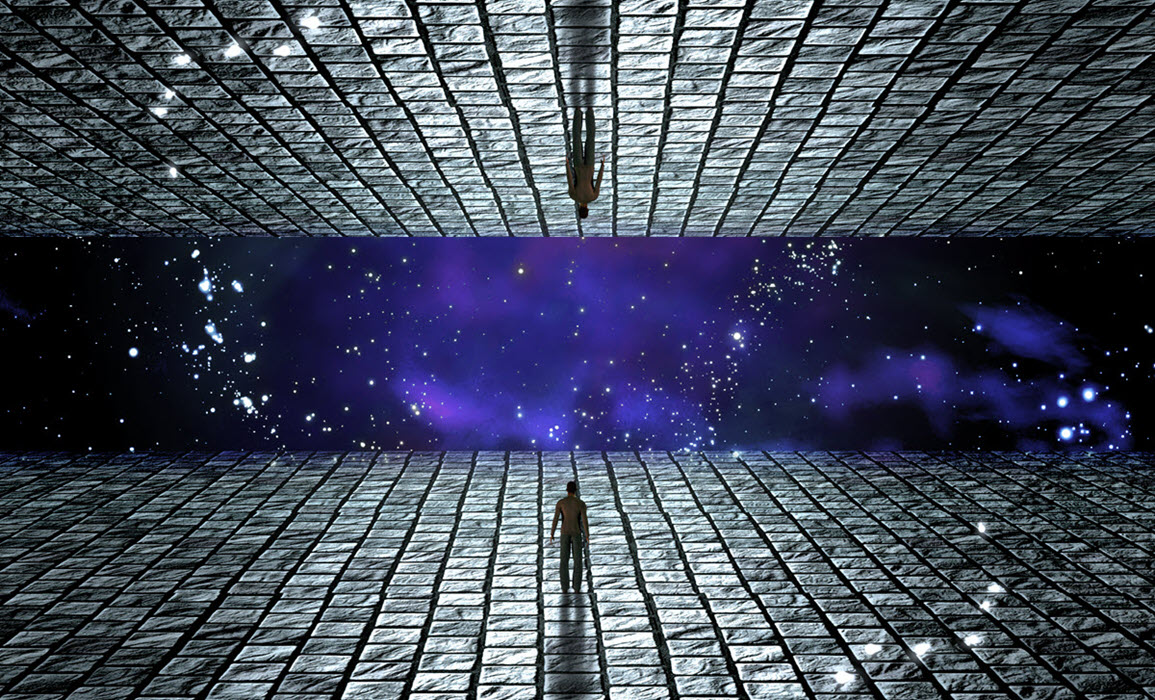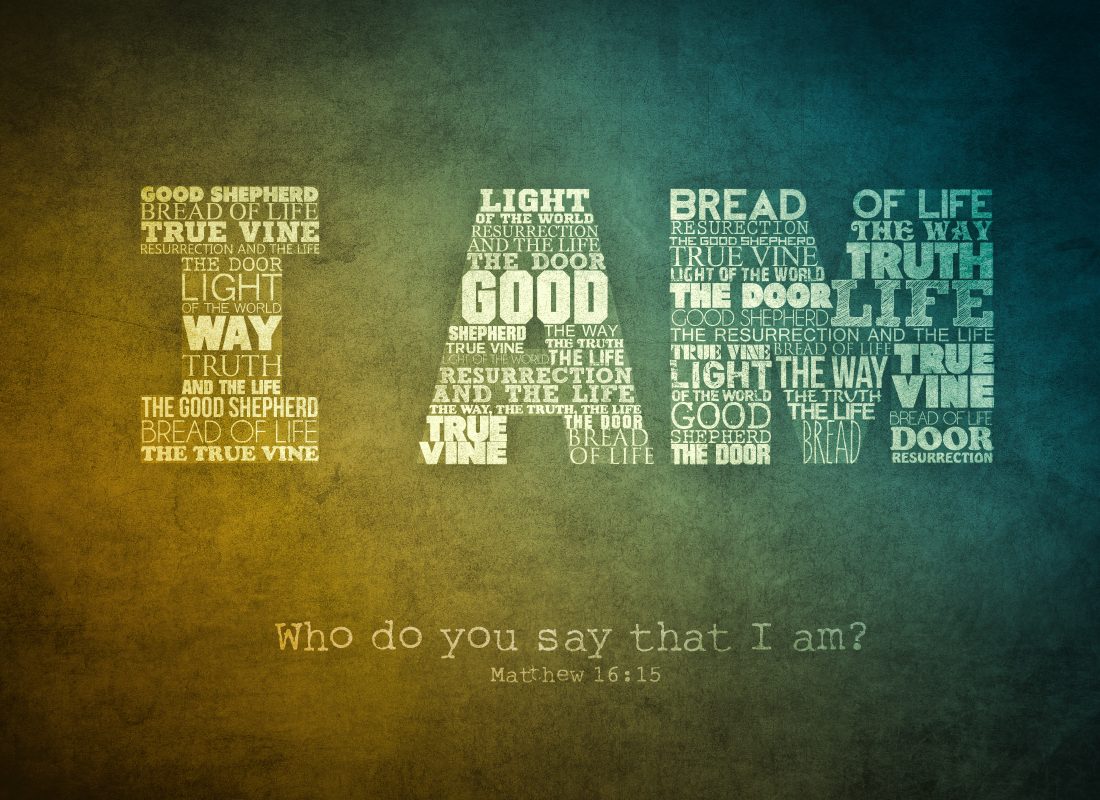Intuition and Un-Intuition and Metaphysics
“On Intuitions” by E. Feser at https://edwardfeser.blogspot.com/2010/07/on-intuitions.html
“Unintuitive Metaphysics” by E. Feser at https://edwardfeser.blogspot.com/2015/08/unintuitive-metaphysics.html
Then, unpacking this:
We All Emote, Perceive, Intuit, And Reason Within The Same Pool
Christian: “….the fact that Christians do trust God in the midst of their suffering should be intriguing to atheists….”
Non-Theist: “….in the case of Allah, you are an atheist…When you see people worship him, even in difficult situations, you are not confused, intrigued or obsessed with getting to know Allah better. That is the same reaction “overall” atheists, who have given this topic any thought, have when we witness Christians doing the same thing. It is not a mystery….”
Non-Theist: “….Humans have a remarkable capacity for resilience in the face of very real suffering and threats to well-being; this is true irrespective of faith in a particular deity, or no faith at all….”
Non-Theist: “….anyone reading who thinks that is the only source of hope through suffering [should] know that there is hope even outside of Christianity….”
Breaking it all down takes more than 100 words, so, let’s start:
We have to avoid being confused by the downstream fact that an Atheist and a Muslim and a Christian all in fact emote, perceive, intuit, and reason within the same irreducible transcendentals. The question on the table is one of degree. As in:
Truth is perceived by all and that is not challenged. In fact, given the Christian metaphysic, it is a metaphysical impossibility for ANY possible world to be void of the ontic of God, so to speak, or to put it another way, it is impossible given the Christian God as opposed to the gods who play while the people pay and given metaphysical naturalism’s illusory Flat Earth or Flat World (… “Flat” in the sense in which Non-Theism necessarily affirms an “Edge” to Reason Itself — as per https://metachristianity.com/reason-being-non-being-ontological-cul-de-sacs/ and as per https://metachristianity.com/atheism-world-flat-none-non-non-theist/ …).
There is ONLY The-Good and, then, there are Degrees/Decrements of The-Good and in fact “Privation” is itself nothing other than “The-Good-Minus-Something”.
“….My philosophy professor Norman Geisler used to put it in this very provocative way: everything about Satan is good. That is to say, Satan has properties like existence, power, intelligence; these are all good things. But the evil that he is characterized by is a privation of right order in his will, and is not a positive thing….” (by W.L. Craig at https://www.reasonablefaith.org/media/reasonable-faith-podcast/questions-on-the-end-of-time-determinism-and-string-theory ).
Theologian Norm Geisler and Rajkumar Richard offer more insight in distinctions in the comment box / thread for “Why Does God Love Satan?” at http://christianapologeticsalliance.com/2017/06/18/why-does-god-love-satan/ The difference in and on and of those Degrees / Decrements is that, in the Christian metaphysic, there is the actual means to distinguish – as per https://disqus.com/home/discussion/standtoreason/did_god_create_evil_video/#comment-3502735304 Therein, again, the Non-Theist (…A-Theist…) and the Muslim and the Christian all in fact emote, perceive, intuit, and reason within the same irreducible transcendentals. The question on the table is one of degree.
A matter of degree:
Arithmetic morphs to algebra which then morphs to calculus which then morphs to something along the lines of something akin to….
“….As I see it, the Platonic error is a common one. It’s a mistake about the relationship between our concepts and the external world…”
…vis-à-vis the pontifications housed in The Metaphysics of Mathematics; Against Platonism (Steve Patterson) as the entire world of numbers is – seemingly – trashed.
But of course that whole world or arena (Mathematics) isn’t being “trashed” but, rather, said world (Mathematics) is in fact being, first, affirmed, and, then, it is simply being observed doing what it must in the end do – which is to lead the rational mind first to the end of its own skin and, then, into the far wider, thicker reality of Perception & Reality – and so on, and so on. Are Numbers real? Well, in many ways, YES. But then again…in many ways… if we travel far enough…they are not Non-Real so much as they are necessarily superseded.
“…..perception-dependent judgments and calculations cannot possibly be ontological in nature….. ” (by Jim Bonnett)
Superseding, not trashing, mathematics: Any contingent frame of reference necessarily fails to be self-justifying. As in self-explanatory. Any such Reference Frame leads one beyond itself, and into the Absolute’s Reference Frame (…while it’s not the focus here, when we say the Absolute’s Own Reference Frame, we land amid Self-Reference, and a few over at Ravi Zacharias’ ministry have discussed the unavoidable Trinitarian syntax which that forces…).
Superseding, not trashing, mathematics once again: We must follow through. Is Math “real”? Well yes and no. Are numbers “real”? Well yes and no. We cannot stop too soon in this or that contingent frame of reference but, instead, we must keep going into the widely available and easily accessible discussions about Presentism and/or Eternalism. There, just as with Platonism, we find that *reason*, rationally followed, leads one beyond one’s own unavoidably contingent reason and into the Necessary & Irreducible vis-à-vis Reason Itself. The Divine Mind presses in.
Keep reading: we are working our way towards the opening statement of the obvious, namely, We All Emote, Perceive, Intuit, And Reason Within The Same Pool.
“…a solipsistic universe would be indistinguishable from a theistic universe…”
The two are actually radically different with respect to one’s explanatory terminus. Solipsism stops with appearances and never asks “But Why“, whereas following that same Question forces one beyond appearances. Defining one’s T.O.E. by mutable and contingent Reference Frames becomes, finally, irrational. That is why the premise that all the evidence leads one to a kind of “indistinguishable armistice” vis-à-vis [Solipsism vs. Divine Mind] is false. The evidence leads on there, to said “Y” in the road – and then still more evidence forces one to make the rational choice.
It is that bit about “…and still more evidence…” which Solipsism cannot provide on its own terms which distinguishes it from the far Wider and Thicker paradigm of the Theist. An analogy from the 4D Block Universe: “…Change is illusion… Change is indistinguishable from non-change…” Full blown Idealism suffers the same deficiencies within its own explanatory terminus. Whether we speak of Idealism or Solipsism we find that the Contingent Mind (…the contingent Reference Frame…) is led by all evidence beyond itself and into the Divine Mind (…the Absolute’s Own Reference Frame which is unavoidably Self-Reference – and therein the Trinitarian Life breaks through…). One *can* refute Solipsism (and even full blown Idealism) given the need to retain the lucid and reject any reduction to absurdity.
Keep reading: we are working our way towards the opening statement of the obvious, namely, We All Emote, Perceive, Intuit, And Reason Within The Same Pool.
“…..if reason’s primordial orientation is indeed toward total intelligibility and perfect truth, then it is essentially a kind of ecstasy of the mind toward an end beyond the limits of nature. It is an impossibly extravagant appetite, a longing that can be sated only by a fullness that can never be reached in the world, but that ceaselessly opens up the world to consciousness. To speak of God, however, as infinite consciousness, which is identical to infinite being, is to say that in Him the ecstasy of mind is also the perfect satiety of achieved knowledge, of perfect wisdom. God is both the knower and the known, infinite intelligence and infinite intelligibility. This is to say that, in Him, rational appetite is perfectly fulfilled, and consciousness perfectly possesses the end it desires. And this, of course, is perfect bliss…” (by David B. Hart)
Doing the work, or at least SOME actual (ontic) work:
“…You said, “Belief in one less God than me is akin to a solipsist’s belief in one less universe than me.”
Sorry, it may be fun to think about in philosophy class, but it’s just not an enlightened view. There have indeed been thousands of religions. Some of them, e.g. Buddhism or Jainism do not assert the existence of a God. Insofar as these religions are simply silent about God and not positively atheistic, and insofar as they do not otherwise conflict with the theistic alternatives, they may even be worth considering as possibly true additions to the true faith.
Among theistic religions, you can’t seriously be saying that there’s no rational reason to prefer Christianity to, say, Thor worship. If God has chosen to reveal Himself, He’s going to succeed. God is not Thor, because God didn’t see to it that worship of Thor flourished. There are only four theistic faiths worth considering as possibly true:
Christianity
Judaism
Hinduism
IslamGod is Just, Merciful and Gracious. Of those four religions, which of them is the religion that speaks of a God of Grace?
…..In my view it comes down to this: Only Christianity characterizes God as offering Grace to sinners, all of whom desperately need it. Our own need for Grace from God is palpable. And the God revealed by reason to all is a God of Grace. So Christianity is the truest religion. Of the religions with any currency in the world, it is the only one that could be true.” (…by W.L., https://disqus.com/home/discussion/standtoreason/three_reasons_why_people_interpret_the_bible_differently/#comment-3624328389 …)
[….keep reading…we are working our way towards the opening statement of the obvious, namely, We All Emote, Perceive, Intuit, And Reason Within The Same Pool….]
What Christian Term?
To be sure that any particular critic of Christianity is being accurate as to what they think it is that a Christian claims when he (the Christian) claims something about love or faith or feeling or intuition or actions or the Bible or ANY contingent C or D or E, and so on, we must be sure that the term they are unpacking does NOT (in their analytic) sum to this or that CONTINGENT some-thing. There is no “Created Something” which is “enough” if one means to unpack any Christian term and that includes all contingent abstractions of all contingent minds of all contingent beings. One must START with the proverbial “A” and one must END with the proverbial “Z” vis-à-vis Being Itself as Reason Itself as Mind Itself as Logic Itself as Love’s Timeless Reciprocity and Ceaseless Self-Giving vis-à-vis Logos vis-à-vis the Trinitarian Life.
So, with that A—Z mode of analytic in mind, we can do a bit of actual (ontic) work for a basic example:
…Faith vs. Works… ↔ …Faith & Works… ↔
Necessity ↔ Contingency ↔ All-Sufficiency:
Faith is necessary. But not sufficient. Example: One can Believe and Trust one’s spouse…. but…. and so on. Knowing that God exists isn’t enough and for all of the same reasons. We cannot name even one contingent vector which can in fact sum to necessary and sufficient in its own being, which can sum to its own explanatory terminus, and thereby Steal Glory from God. That looks something like the following:
[A] Necessity ↔ Contingency ↔ Christ ↔ Insufficiency ↔ [Z] All Sufficiency
Notice the A—Z again. All-Sufficiency’s Self-Outpouring is unique to the Christian metaphysic and in fact any Theism which attempts it must make such a move dependent upon creating for it is in the Trinitarian Life alone wherein such Processions in fact sum to Being, to The Always and The Already.
Notice the A—Z again. And so on. And, so, again that is all said simply to be sure one is being accurate as to what one means to charge any Christian claim with when the Christian claims something about love or faith or feeling or works or intuition or the Bible or C or D or E, and so on.
Getting back to that POOL (… https://disqus.com/home/discussion/standtoreason/why_it_isnt_naive_to_trust_god_in_your_suffering/#comment-3467236267 ..) of irreducible transcendentals in which we all splash about, this-way and that-way:
Christian: “….the fact that Christians do trust God in the midst of their suffering should be intriguing to atheists….”
Non-Theist: “….in the case of Allah, you are an atheist…When you see people worship him, even in difficult situations, you are not confused, intrigued or obsessed with getting to know Allah better. That is the same reaction “overall” atheists, who have given this topic any thought, have when we witness Christians doing the same thing. It is not a mystery….”
Non-Theist: “….Humans have a remarkable capacity for resilience in the face of very real suffering and threats to well-being; this is true irrespective of faith in a particular deity, or no faith at all….”
Non-Theist: “….anyone reading who thinks that is the only source of hope through suffering [should] know that there is hope even outside of Christianity….”
Before addressing those three responses, it is worth observing that our Non-Theist friends get confused by the downstream fact that an Atheist and a Muslim and a Christian all in fact emote, perceive, intuit, and reason within the same irreducible transcendentals.
That is in part why they are also confused when they are asked to trace all such currents upstream to their fountainhead.
They get lost inside of little downstream cul-de-sacs (…as per https://metachristianity.com/reason-being-non-being-ontological-cul-de-sacs/…), and, upon noting that said pool has the Atheist and the Muslim and the Christian all splashing about in its currents, run off into this or that tangent which simply fails to swim so much as a few yards. That unwillingness to swim upstream or downstream is made worse by a seeming unawareness of the fact that in Suffering, as in the Moral, as in the Good, there is no such possibility of those little downstream pools or ontological cul-de-sacs constituting, all by themselves, the proverbial “necessary and sufficient”.
Stopping one’s explanatory trail in any such downstream cul-de-sac or pool is just uninformed. Worse, the very concept of an ontological cul-de-sac is itself a logical impossibility.
The Non-Theist’s three responses at the opening are for the most part well stated and that reaction “there” is appropriate given the conclusion which our Non-Theist friends note. And it suffices – so long as – we allow our lens to stay “there”.
The reason it does not go the full distance “here” though may not become apparent “until” this same epistemic stopping point begins to reference, not this or that God, but ANY contour, at all, of reality’s concrete furniture vis-à-vis The Good. Any theodicy or lack thereof just does begin and end “there” and if our Non-Theist friends really do mean to strip reality of the irreducible, of the immutable, when it comes to The Good then there are necessary consequences to that move – there is a “Y” in the road and they are too often unwilling to embrace such consequences – yet it is “there” where this whole affair of “intriguing” lives. Our Non-Theist friends are, too often, inconsistent in their philosophy once they reach that “Y” in the road in that they, too often, do not think things through when it comes to The Good.
As in:
This or that God / No-God is fine – we are happy to grant it at this juncture. However, any Non-Theist who claims to have thought about it lots and lots and then doesn’t follow through at that “Y” is not fully informed. They’re great at (…for example…), say, quoting a few Old Testament verses and invoking a kind of cloud or a category of vapor constituted of Moral Facts in which to couch their complaints with respect to the verses in their complaint, but, that’s about the end of their reach as things just inexplicably come to a full stop “there”.
Again, we can allow or grant something like this reply to our Non-Theist friends in such situations, “Well, okay, given the narrative you’ve just given us, constituted of your cloud or vapor of moral facts on your end and of those few chapters from the Christian’s end which you just quoted, yes, the Christian God is not real, or does not comport with reality, or whatever….” – and so on. But the current content – and Christianity writ large – is not about “that narrative”.
The essay here is on Suffering and anyone who tries to rip that out of The Moral won’t go far.
Briefly – Theodicy:
The question of this or that theodicy is absolute regardless of one’s conclusion pro or con as there is a final Cosmic Terminus which – either way – pro or con – touches every last thread of reality, and that is whether we are speaking of the actual or of the possible. If one affirms this or that theodicy with respect to suffering, well that brings with it some necessary content depending on the various transcendentals in play. Just the same, if one rejects any such “Cosmic Substrate” as it were, as the Non-Theist must, well then that too brings with it necessary content. The specific fact of The Good in the irreducible senses which are made note of are, here, when made by ANY person of ANY philosophical persuasion, what all of our assessments present to the Non-Theist which the Non-Theist must, in no uncertain terms, reject. The Non-Theist’s mistake in the replies quoted earlier is a common one in that it focuses on everything but the point that is that “Y” in the road of ontic-possibility. Should there never have been any such thing as religion / talk-of-god, and etc., and, then, should, say, “Mr. So-&-So” then begin to speak of The Good which, say, something like, “cosmically outdistances” all the affairs of Time and Physicality, well then the point would be harder to miss. But, given the real world of differing views, the Non-Theist has grown tone-deaf to his own Non-Theism and therefore focuses on everything but the very thing we are reminding him he ought to find intriguing.
The series of mistakes made by our Non-Theist friends here in the arena of “The Good / God” juxtaposed to “Pain / Privation” is in fact the same series of mistakes they make in the arena of “the irreducibly moral“. It all springboards off of the Non-Theists very first step of either unknowingly missing or else knowingly ignoring the express content of the irreducible / immutable which in fact outdistances all mutable and contingent situations.
Upstream & Downstream – Again:
That is why our Non-Theist friends get confused by the downstream fact that an Atheist and a Muslim and a Christian all in fact emote, perceive, intuit, and reason within such irreducible transcendentals.
That is also why our Non-T. friends are confused when they are asked to trace all such currents upstream to their fountainhead. They get lost inside of little downstream cul-de-sacs and, upon noting that said pool has the Atheist and the Muslim and the Christian all splashing about in its currents, run off into this or that irrelevant tangent which simply fails to swim so much as a few yards. That unwillingness to swim upstream or downstream is made worse by a seeming unawareness of the fact that in Suffering, as in the Moral, as in the Good, there is no such possibility of those little downstream pools or ontological cul-de-sacs constituting, all by themselves, the proverbial “necessary and sufficient“. Stopping one’s explanatory trail in any such downstream cul-de-sac or pool is just uninformed. Worse, the very concept of an ontological cul-de-sac is itself a logical impossibility.
Options In The One Ontic-Pool In Which We All Emote & Perceive & Intuit & Swim
Pantheism is temporally (as in temporarily – or in the now – or within Time… Etc., …) more coherent than Non-Theism there, but only temporally, for, in the end, it (Pantheism) is unable to sustain the ontic-distinction between The Good (on the one hand) and Privation (on the other hand), for all that is is God and therefore Good (…“All-That-Is-Is-God-Full-Stop”…).
Non-Theism does not have that problem for there is nothing to plug-in after the word “is” – in that on Non-Theism there is no possibility of an A and/or a Z to tack on which is anything but the amoral substratum of irreducible indifference (…“All-That-Is-Is-Full-Stop”…).
Those two options, the one of Non-Theism’s “All-That-Is-Is-Full-Stop” and of Pantheism’s “All-That-Is-Is-God-Full-Stop” have some coherent layers when held in isolation from all the other layers and attract many followers given said isolation, given this or that attempt at the logical impossibility of hiding in an ontological cul-de-sac, but, in the end, neither is able to push through to Totality and thereby to Seamlessness vis-à-vis ONE metaphysic without trading away lucidity. That trade is trouble. Why? Because all the Buzz around Town is telling us what all the major Networks have always been telling us – that Reason is just head-over-heels in love with Lucidity. Rumor has it that those two kids are going to have some sort of Wedding or some such some-thing. Now, that should be quite a celebration!
Regarding Degrees of “Mathematics” and so on, we find the SAME topography when it comes to Man (the contingent being, who is necessarily insufficient in his own self) and God (the necessary being Who is necessarily All-Sufficient in Himself).
As in:
It is a logical impossibility for something less than the Necessary, the All-Sufficient, to somehow quench insufficiency in the contingent being. Degrees and distinctions in and of and amid all weaker vectors do not expunge reality of that necessary fact amid The-Necessary / The-Contingent.
To affirm that “Final Fact” or “Terminus of Explanation” is not to deny the reality of all those lesser or weaker vectors Rather, it is the inevitable result of logic’s relentless demands for lucidity being allowed to push through to her proper explanatory terminus.
It is a logical impossibility for something less than the Necessary, the All-Sufficient, to somehow quench what is an (ontic) necessary insufficiency in ANY contingent being. Degrees and distinctions in and of and amid all weaker vectors does not expunge reality of that necessary fact amid The-Necessary / The-Contingent.
Necessity & Contingency Force The Syntax of Christ, as the nature of what we mean by The Necessary Being and by the contingent being forces our hand:
“Why Is Jesus the Only Way?” at https://disqus.com/home/discussion/standtoreason/why_is_jesus_the_only_way_video/ and the question of from where and how can the Contingent Being find Eternal Life but for the Necessary Being? Our hand is forced:
[A] Necessity
↔ Contingency → Christ ← Insufficiency ↔
[Z] All Sufficiency
The A and Z of all ontological possibilities cannot yield any other sum — as per the majority of each of the following ((…minus a few of the links in each as they’re not essential…))
a. https://disqus.com/home/discussion/standtoreason/why_is_jesus_the_only_way_video/#comment-3558289663 and
b. https://disqus.com/home/discussion/standtoreason/why_is_jesus_the_only_way_video/#comment-3558291889 and
c. https://disqus.com/home/discussion/standtoreason/why_is_jesus_the_only_way_video/#comment-3558323188 and
d. https://disqus.com/home/discussion/standtoreason/is_christianity_the_only_way_video/#comment-3512068347
The Arrow Of Meaning Makers
“…all of them rely on texts which they assume true in such a way that it excludes all other views and they use them to claim that only their view is correct….”
Actually, the Arrow flows in the opposite direction. It is NOT “from” the Bible and “into” reality, mind, perception, and reason. It is in fact the opposite. Therefore that sweeping “ALL” brushstroke there within “They ALL rely on…assume is… use them to claim… correct…” fails for obvious reasons. One only need start with Perception and Reality and simply start reasoning (…for example as per Natural Theology…).
Saying The True is based on the Bible is like saying Physics “comes from” (…the Ontic and so on…) that physics book over there on the shelf.
Saying The Good is based on the Bible is like saying Physics “comes from” (…the Ontic and so on…) the physics book over there on the shelf. But “Good” is *not* based on the Bible. Not according to the Christian Metaphysic. In fact it’s far worse than all of that as we find that it is entirely fallacious to foist the claim that within Christendom The Good in fact “comes from” something created and world-contingent given that “it” (The Good) just is *GOD* (in Christendom). The Divine Mind and all of that.
The same goes for all things Sinai too given that Moral Excellence is defined (in Scripture) as that which precedes, outdistances, out-performs, and leaves behind, all things Sinai.
While it is understandable that discomfort may compel some of our Non-Theist friends to avoid reality as it actually is and thereby invent and then argue against various Non-Christian, Non-Old-Testament, and Non-Paradigmatic Start/Stop points or premises, it would be better for our Non-Theist friends to interact with the real world as it actually is.
….but imagine you’re talking to an Mr. A or Mr. B or Mr. C who, on their end, start not with your ABC but instead with a Q or an R or an S, so to speak….
It is true that we all need to put our presuppositions on the table. That of course brings in Edward Feser’s notion of “explanatory terminus” and that is fine as far as it goes. We all have our explanatory terminus – and that need not be our “conclusion” about this or that Metaphysical Fountainhead of all Ontological Possibility, but, rather, such can be, and often is, the farthest reach of whatever Trail of Premises our own Syllogism has traveled to so far.
However, two observations:
First: That fact in and of itself is not helpful in that with respect to that premise it is true that disagreements, agreements, and presuppositions are real “boxes”. But pointing out “Such boxes exist…” is not an argument. “But there’s disagreement!” is nearly as fallacious and sloppy as one can get vis-à-vis the category of Knowledge.
Whether it is Islam or Hinduism or Alien Abductions of Cows by Martians or Non-Theism or whatever, it always comes back to the fact that each comes as a body of statements which do *not* exist in a vacuum but are in fact immersed in the whole of reality. That is why “…little “slices” full-stop..” just won’t do. For example, both Paul and Non-Muslims had experiences which converted them FROM “persecuting X” and INTO “Affirming X”. The sloppy-fallacy of A-Little-Slice-Full-Stop which too often springboards off of that is akin to:
“….well there are eyewitness accounts of X so “therefore” I have met the Christian burden of rational belief so WHY don’t Christians believe in those other X’s TOO….?”
A fuller reply to that side of the equation is at https://metachristianity.com/miracles-in-other-religions-eyewitness-testimony-mermaids-alien-abductions-flying-spaghetti-monster-zeus-thor-copycat-gods-celestial-teapots/
Second: All of that is why the reality of the box called [certainty/uncertainty] cannot help us decide – or more precisely – certainty/uncertainty do not necessarily and rationally compel reason (…in her role as truth-finder…) into A vs. B. vs. C., as it were. But that’s old news. Everybody already knows that with respect to the nature of the knowledge of reality (…on the one hand…) and the fundamental nature of reality (…on the other hand…).
All roads carry us, eventually, to an occasionally painful “Y” in the road between the forced reductio ad absurdum (…on the one hand…) and reason’s lucidity (…on the other hand…). Uncertainty by itself never has disqualified a premise, but what is clear is that when this or that premise forces a reduction to absurdity, the premise itself is (then) rationally rejected. Reason’s relentless demands for lucidity press ever forward, outward, upward.
Following are two excerpts from the thread in https://www.thinkingchristian.net/posts/2016/11/what-take-give-up-belief-jesus-christ and they each have overlap with the topic here. They’re both several paragraphs and so to help avoid transitions they are [bracketed] between “Begin/End Excerpt” and so on:
Begin Excerpt 1 of 2
Your observation that people believe different things is, well, astoundingly trivial. Is there more? Or are you done?
You stated,
“Tom, You said, “Martian milk cow abductions would be impossible to fit in with any view of reality.” Not true. There are thousands of people on earth who believe in extra-terrestrials. Do a google search and you can find their websites. You don’t consider alien abductions as realistic because it violates YOUR worldview.”
False. You’re missing the obvious here as all you do is say, “But there are people who believe X and you don’t believe X!” and then you simply fail to investigate the evidence.
This is not about claims, but, rather, this is about the duo of evidence in conjuncture with various claims. Disagreement isn’t evidence in and of itself, rather, the arguments pro/con and the evidence each side presents is where the action is. Yet all you do is point to disagreement.
So much for gravity then, eh?
Any claim is fine to make. Each claim simply has to be unpacked and if, say, Gary tells us that Naturalism claims to be ontology or if Islam claims God did X, or of Bob tells us that he was abducted by aliens then the process of evaluating those claims is straightforward: gather the facts and follow the evidence.
You seem to suppose that the only evidence for Christianity is in the four Gospels. “Eyewitnesses Full Stop!” But that’s false.
You seem to suppose that the only evidence for Christianity is, “-Cause da-bible -tells me-so”. But that’s false.
See? This comes back to Islam and Hinduism and Naturalism and so on, as each comes as a body of statements which do *not* (contrary to your silly premise) exist in a vacuum but are in fact immersed in the whole of reality.
That is why all of this is a very different process than your lazy and un-discerning brushstrokes here which splash about all while claiming the untenable — that cosmology is ontology, that it is explanatory (and that all the experts say so), and that Joshua really did according to scripture and history kill all life in the land of child-sacrifices (Canaan) (…despite the fact that city upon city upon city of Canaanites are blatantly present AFTER that statement…). Now, those untenable claims of yours are not untenable because you claim them, but because there is rational evidence to the contrary.
Islam or Hinduism or Space Aliens or Naturalism’s baggage, it’s all the same. It’s not about the reality of disagreement. It’s about the reality of evidence in conjuncture with said claims pro/con.
We all know all sorts of different people believe all sorts of different things. Well, as unimpressive as that observation of yours is, do you have anything else?
Or are you done?
End Excerpt 1 of 2
Begin Excerpt 2 of 2
Objective truths about God?
A primary objection here seems to be either that there are no objective truths about God (…see https://www.reasonablefaith.org/writings/popular-writings/existence-nature-of-god/are-there-objective-truths-about-god/ …) or else, perhaps, it is the case that language and objective truth (…see https://www.reasonablefaith.org/writings/question-answer/language-and-objective-truth …) are somehow incompatible in any arena outside of a strict positivism/empiricism. Both of those end up inside of deflationary truth values and that becomes obvious as we look at propositional truth and truth predicates relative to semantic ascent (…see both a. https://www.reasonablefaith.org/writings/question-answer/anti-realism-and-truth/ and also b. https://www.reasonablefaith.org/writings/scholarly-writings/divine-aseity/propositional-truth-who-needs-it/
On the question of whether or not there are objective truths about God, the first link opens with this:
“That being so, however, it remains the case that there is no peculiarly Christian theory of truth. This is just as it should be, for if Christianity presented a distinctive definition and standards of truth, then its claim to be true would be circular or system-dependent and therefore trivial. But the Christian faith means to commend itself in the marketplace of ideas. The Christian faith claims to be true in the common, ordinary sense of that word and leaves the enunciation of a more careful definition to the philosophers. Thus, when philosophers formulate various theories of truth, such as the Correspondence Theory of Truth, the Coherence Theory of Truth, or the Existence Theory of Truth, none of these can be christened as *the* Christian Theory of Truth, and there have been Christian philosophers among the adherents of each one. For my part, I find some minimalist version of the Correspondence Theory to be most satisfactory…….”
Then, it concludes with the following:
“In summary, it seems to me that while Christian theology does not propound a particular theory of truth, it is wholly compatible with the traditional notion of truth as correspondence. The Christian world view purports to describe reality as it is and therefore to be true. The challenges posed to theological truth by Verificationism, Mystical Anti-Realism, and Radical Pluralism are all ultimately self-defeating and incoherent……”
Another odd but interesting and (somewhat) related issue has to do with Necessary But Dependent Beings (…see https://www.reasonablefaith.org/writings/question-answer/necessary-but-dependent-beings/ …) and the semantics involved there.
As touched in the earlier links discussing objective truths about God, we find that, as always, the process is the same regardless of the claim. All claims are found under the singular umbrella of “knowledge” in this or that form. When we say that Gravity is X, we mean various things by that claim as “gravity” and “is” and “X” are all comprised of an epistemic landscape which is itself ultimately tied to an ontological interface somewhere. As the copied “Q & A” below discusses such is a process of fashioning a cumulative case whereby truth as correspondence explains the real world as we actually find it (…see both a. https://www.reasonablefaith.org/writings/question-answer/do-theistic-arguments-prove-god with respect to the cumulative nature of information and also see b. https://strangenotions.com/ama-dr-feser-answers/ with respect to the Either/Or which is forced between this or that Potential Option (on the one hand) and an Absurdity (on the other hand).…)
Before going further, here’s the “Q & A” with W.L. Craig from the link asking if theistic arguments prove God:
Begin Quote:
Question:
“…….What is the relationship between the phenomena to be explained in theistic arguments, and the thing that does the explaining. None of the arguments prove God as such, but all serve to yield a key piece of the puzzle. But how do we know these arguments refer to the same explanation, and how can one offer the nonbeliever a single argument to show God exists, when there is always an ambiguity in what this word entails? What do you mean when you say that a certain argument leads to “God”?”
Reply by Craig:
You’re making a good point about all the theistic arguments….. though I think it shows, not a flaw, but simply the limits of each argument. Just as the moral argument doesn’t prove God to be omnipresent, neither does the cosmological argument show God to be morally good nor the teleological argument God to be omniscient or eternal. The explanatory ultimate in each case does not yield a full-orbed doctrine of God. What the moral argument gives us is a metaphysically necessary, personally embodied Good; that’s a rich enough concept to merit the name “God,” I think, but if you find that concept too thin theologically to be called “God”, then I’ll just stop with a metaphysically necessary, personally embodied Good. Similarly, the kalam cosmological argument gives us an uncaused, beginningless, changeless, immaterial, timeless, spaceless, and unimaginably powerful, personal Creator of the universe, a conception rich enough, I think, to deserve the label “God.” But if you protest that such a being hasn’t been shown to be good and therefore God, that’s fine—I’ll just content myself with the description of the explanatory ultimate reached by the argument.
As I have said before, it would be a bizarre form of atheism, one not worth the name, which admitted that, say, a metaphysically necessary, personally embodied Good exists or that a transcendent, personal Creator of the universe exists. So in answer to your question, “What do you mean when you say that a certain argument leads to ‘God’?”, I mean that the argument implies the existence of a being that is most plausibly to be identified as God.
What your question underlines is that the theistic arguments constitute a cumulative case, such as a lawyer presents in a court of law, in which independent lines of evidence reinforce one another to support the overall conclusion not implied by any single argument. This raises the question, “how do we know these arguments refer to the same explanation?” Though much could be said about this, I think that the simplest and wholly adequate answer to this question is Ockham’s Razor. We shouldn’t multiply causes beyond necessity. It’s more plausible to think that the Creator of the universe proved by the kalam cosmological argument is also the Designer of the universe proved by the teleological argument than to think that these are two beings. Similarly, it’s more plausible to think that the metaphysically necessary ground of the universe proved by the argument from contingency is also the metaphysically necessary, personally embodied Good proved by the moral argument than to think that these are two realities. One of the impressive virtues of theism is its explanatory scope: it unites so many diverse things under a single explanatory ultimate.
You also ask, “how can one offer the nonbeliever a single argument to show God exists, when there is always an ambiguity in what this word entails?” This was the very question which burdened St. Anselm. He wanted to find a single argument which would prove that God exists in all His greatness. He had just about given up, when he discovered his ontological argument. This argument, if successful, proves the existence of a greatest conceivable being. I think that the ontological argument is a sound argument for God’s existence. But I don’t see it as a stand-alone argument; it, too, is part of the theist’s cumulative case, for the other theistic arguments provide reason to think that it is possible that the greatest conceivable being exists, which is the key premise of the ontological argument.
End Quote.
There is a helpful phrase there worth repeating:
“But I don’t see it as a stand-alone argument; it, too, is part of the theist’s cumulative case, for the other theistic arguments provide reason to think that it is…….”
This is the reason (well, it’s one of the reasons) that the Non-Theist’s appeal to “But different people belief different things!” is in fact a non sequitur – as such is forever missing the problem on the table: the duo of evidence and claims. Hence any move (by any of us) which starts with, “But there are people who believe X and you don’t believe X!” and then just goes silent fails because it fails to investigate the evidence. Truth as correspondence (etc.) is not about claims, but, rather, this is about the duo of evidence in conjuncture with various claims. “The mere fact of disagreement” is not evidence in and of itself, rather, the arguments pro/con and the evidence each side presents is where the action is.
Any claim is fine to make. Each claim simply has to be unpacked and if, say, someone tells us that Naturalism (Cosmology / Physics, say) in fact can become and in fact *be* ontology, or that, say, Islam claims God did X, or that, say, of Billy-Bob tells us that he was abducted by aliens, and so on, the process of evaluating those claims is straightforward: gather the facts and follow the evidence.
Hence ANY Of us needs more (should that be our approach). Sorry to disappoint our Non-Theist friends IF that is all they’ve brought to the table. Once again: This all comes back to Islam and Hinduism and Naturalism and so on, as each comes as a body of statements which do *not* (contrary to a few silly premises of our Non-Theist friends) exist in a vacuum but are in fact immersed in the whole of reality.
Such is the process of fashioning a cumulative case whereby truth as correspondence explains the real world as we actually find it.
The irreducibly rational presses in:
Tom said,
“We all know that if someone showed us “the bones of Jesus Christ,” it would be easy to believe they were someone else’s bone’s instead. No, for me the answer is this: I would give up my Christian belief if someone showed me a better explanation for reality. Christianity provides a better foundation than any other worldview for explaining……..”
Feser comments,
“As most of my readers probably know, I was an atheist for about a decade — roughly the 1990s, give or take. Occasionally I am asked how I came to reject atheism. I briefly addressed this in The Last Superstition. A longer answer, which I offer here, requires an account of the atheism I came to reject….”
It’s a bit long, but that “Road From (out of) Atheism” is described at http://edwardfeser.blogspot.com/2012/07/road-from-atheism.html
Explanatory power matters. Any T.O.E. which is willing to trade away explanatory power merely to preserve emotive ties to cherished presuppositions never will, in the end, survive logic’s relentless demands for lucidity. The irreducibly – or ontic – or non-illusory – rational presses in – and through.
End Excerpt 2 of 2
Lastly:
What About Reason?
Whether or not “I/Self/Mind” is irreducible and in fact part of reality’s concrete furniture (…Etc…) or if instead such is fundamentally illusory is an unavoidable bit of accounting which ANY syllogism about [Perception] and [Knowledge] must provide. The Edge of Reason in the elimination of the Mind/Self exposes what just is the End of Reason and that is unavoidable in one’s metaphysic unless reality’s explanatory terminus is in fact Reason Itself vis-a-vis Being Itself.
Knowledge Piggybacks Off Of Knowledge:
“….but that body of knowledge called QRS piggybacked off of that earlier body of knowledge called ABC…therefore QRS is inherently fallacious….!”
Fortunately Reason & Logic & Love begin & end all Communique/Syntax and therein contingent minds build and navigate & add & so we widen & discover actual facts. We become what we behold as the Self-Revealing God breaks through.
As opposed to Non-Theism’s Irreducible/Concrete Furniture which Testifies that Self is illusion & thereby Reason with it ((“because Physics-Full-Stop”)) & which Testifies that nothing is irreducibly || concretely || objectively wrong/evil ((“because Physics-Full-Stop”)). A fallacy emerges with respect to that and the supposed “acquisition” of “knowledge” as per the following form:
(A) “It Turns Out That “3X” Actually Piggybacked Off Of “X”. Therefore 3X Is Fallacious. Because [Knowledge].
(B) “Calculus piggybacks off of subtraction & addition. Therefore calculus is fallacious. Because [Knowledge].
The [reductio ad absurdum] there is that [everything] [Piggybacks] off of [something]. Therefore, IF one means to tow that line THEN one’s Reason had better Piggyback all the way home — to Reason Itself vis-à-vis Being Itself.
For context see both a. https://metachristianity.com/atheism-world-flat-none-non-non-theist and also b. https://metachristianity.com/reason-being-non-being-ontological-cul-de-sacs











